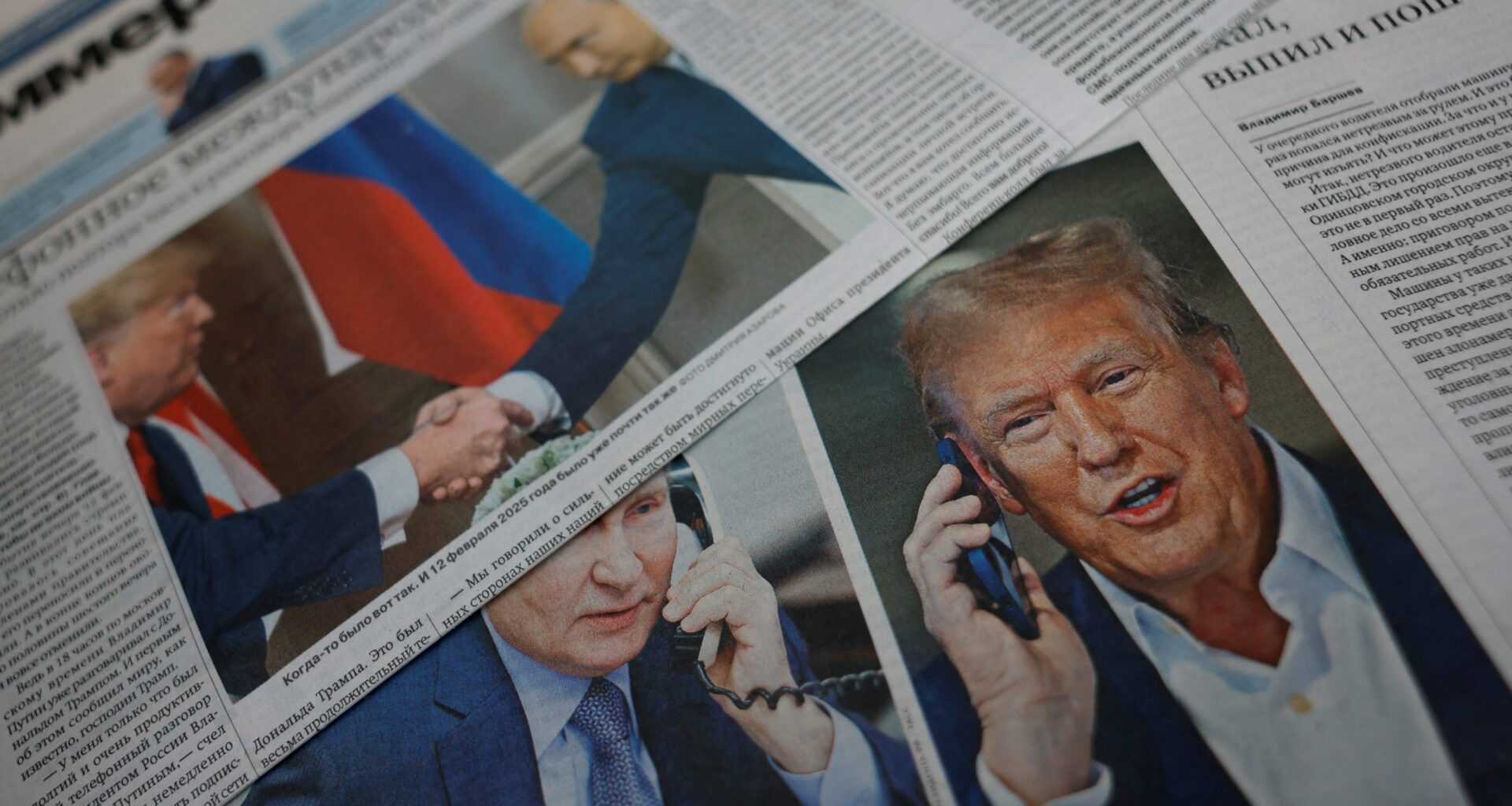The Putin regime’s top propagandists and experts serve a number of purposes. Their primary state-directed role is to parrot and polish official talking points handed to them at regular Kremlin meetings. To outsiders, their outpourings offer a window into regime thinking
So during September, it was possible to discern that President Trump’s descriptions of Russia as a “paper tiger” had caused only mild irritation. But in October, the US administration’s willingness to consider selling Tomahawk cruise missiles to Ukraine brought a much more anxious response.
Indeed, it’s fair to say the possibility of the missiles — with their 1,500-mile range encompassing Moscow, 500 miles from Kyiv, and much of the country’s key infrastructure — appears to have hit the propagandists and their experts like a ton of bricks.
Appearing on a state TV show , 60 Minutes on Tuesday, retired Admiral Sergei Avakyants noted that the potential delivery of Tomahawks to Ukraine is “a very serious issue.” In response to leading questions from the host, Olga Skabeeva as to whether Russia would strike the United States in response (presumably with nuclear weapons, a favorite theme on Russian state media), the admiral said that for now, this is not a viable possibility.
He also conceded that this might present another problem, since a weak response could prompt discontent within the Russian population. After years of threatening to strike the decision-making centers in Washington, D.C., propagandists had to inform everyday Russians that long-range strikes deep within Russia won’t necessarily lead to a nuclear war with America.
During the October 2 broadcast of the Full Contact radio show, Vladimir Solovyov urged the Russian leadership to completely obliterate all of Ukraine’s infrastructure with the aim of returning it to the Stone Age. He argued that during a war, all infrastructure is considered military. A man of limited self-awareness, Solovyov seemingly failed to realize that the same principle could be applied to Russia.
Even so, he was badly shaken by the idea of Tomahawks flying towards Moscow.
He wondered out loud: “Is this it? Did the period of candy and chocolates with Trump come to an end? Will we now get the whip? Will Daddy now start beating Russia with golf clubs?”
Get the Latest
Sign up to receive regular emails and stay informed about CEPA’s work.
Solovyov, the most notorious self-described “nuclear maniac” on Russia’s state-controlled airwaves, who routinely threatens the United States and other Western countries with nuclear strikes, was so panicked that he had to admit the disingenuous nature of his perennial nuclear threats.
On September 30, during his show The Evening With Vladimir Solovyov, he asserted that the West will undoubtedly provide long-range missiles for use against Russia, “Regardless of how laughable all of this sounds, let’s base it strictly on our history. They will jump — there is no way they won’t jump.”
Solovyov went on to concede that mutual nuclear strikes between Russia and the US would end the world as we know it: “Direct strikes by countries with equal potential are pointless. This immediately means total destruction.” He nonetheless explained the Dead Hand system, designed to launch nuclear missiles at US targets if it detected a nuclear attack on Moscow. Solovyov gleefully noted: “Europe doesn’t have anything like this.”
Andrey Sidorov, Deputy Dean of world politics at Moscow State University, insisted that regardless of the Tomahawk decision, Europe will be able to cause damage to Russia. Solovyov argued that Americans and Europeans are already doing so, absurdly blaming them for Ukraine’s successful strikes on Russian oil refineries, which have been executed by drones manufactured in Ukraine and using Ukrainian intelligence (although that too may soon change). In response, he argued, Russia should be bombing oil refineries in Holland.
For his part, Sidorov proposed moving the masts on the USS Richard Montgomery, a World War II ship that sank in the Thames Estuary in 1944 while carrying approximately 1,400 tons of explosives. He predicted that the resulting explosion would flood all the UK’s nearby coastal villages and ports. Sidorov concluded: “We can start with this today.”
It’s fair to note that the US has not decided to supply Tomahawks, and the story may therefore be much ado about nothing. Some unnamed officials are already walking back this possibility, although these figures also suggested other munitions may be made available — the new Barracuda system with a range of up to 500 miles has been mentioned.
Whatever the final decision, the eyes of the Kremlin and its state media remain firmly fixed on Washington.
Julia Davis is a columnist for The Daily Beast and the creator of the Russian Media Monitor. She is a member of the Academy of Television Arts and Sciences, the Screen Actors Guild, and Women In Film.
Europe’s Edge is CEPA’s online journal covering critical topics on the foreign policy docket across Europe and North America. All opinions expressed on Europe’s Edge are those of the author alone and may not represent those of the institutions they represent or the Center for European Policy Analysis. CEPA maintains a strict intellectual independence policy across all its projects and publications.

Europe’s Edge
CEPA’s online journal covering critical topics on the foreign policy docket across Europe and North America.
